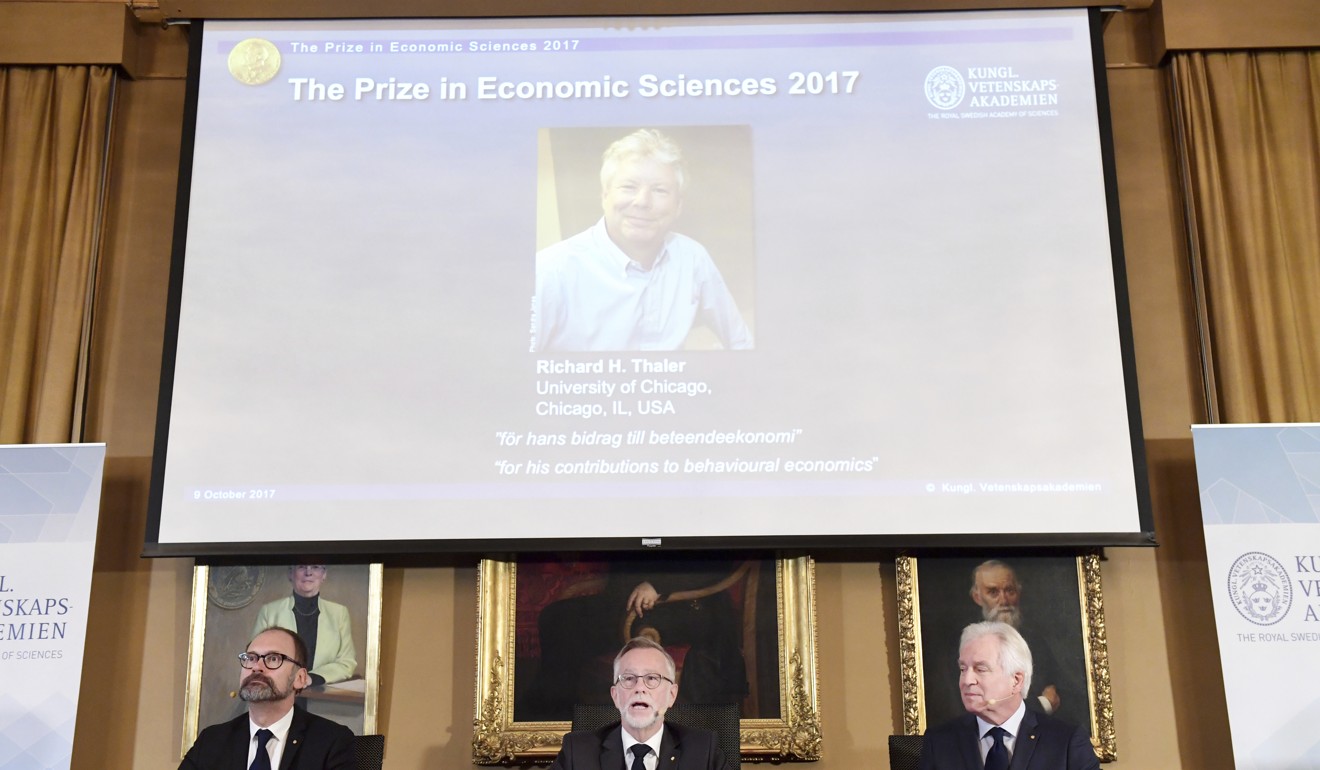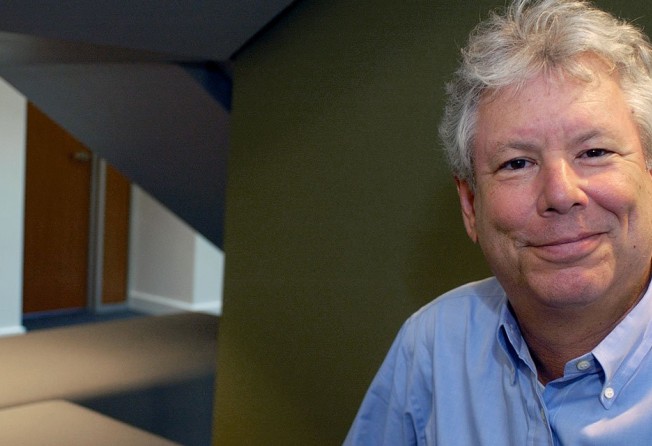
American Richard Thaler, famous for ‘nudge’ theory and film cameo wins Nobel Economics Prize
Richard Thaler is a professor at the University of Chicago – a school popular with the Nobel economics committee

The Nobel Prize in Economics has been awarded to Richard Thaler of the University of Chicago for his contributions to behavioural economics.
The 9 million kronor (US$1.1 million) prize was awarded to the academic for his “understanding the psychology of economics”, Swedish Academy of Sciences secretary Goeran Hansson said yesterday.
The Nobel committee said Thaler’s work showed how human traits affect individual decisions as well as market outcomes.
Thaler, 72, “is a pioneer in behavioural economics, a research field in which insights from psychological research are applied to economic decision making”, a background paper from the academy said. That “incorporates more realistic analysis of how people think and behave when making economic decisions”.

Thaler’s best-known work Nudge, written together with Cass Sunstein, explored the concept of tackling societal hurdles by applying behavioural economics. Other books include Quasi-Rational Economics, The Winner’s Curse: Paradoxes and Anomalies of Economic Life and Advances in Behavioural Finance.
He even made a cameo appearance in the 2015 film, The Big Short, about the credit and housing bubble collapse that led to the 2008 global financial crisis.
Thaler told the Nobel committee by videoconference he was “pleased” by the award.
“Well, I was pleased. I no longer will have to call my colleague Eugene Fama ‘Professor Fama’ on the golf course,” he joked, referring to his University of Chicago colleague who won the 2013 Nobel Prize in Economics.
Watch: Richard Thaler explains ‘hot hand fallacy’ in The Big Short
The economics prize is something of an outlier – Alfred Nobel’s will didn’t call for its establishment and it honours a science that many doubt is a science at all.
The Sveriges Riksbank (Swedish National Bank) Prize in Economic Sciences in Memory of Alfred Nobel was first awarded in 1969, nearly seven decades after the series of prestigious prizes that Nobel called for.
Despite its provenance and carefully laborious name, it is broadly considered an equal to the other Nobel and the winner attends the famed presentation banquet.
Last year’s economics prize went to British-American economist Oliver Hart and Bengt Holmstrom of Finland for their groundbreaking research on contract theory, which has helped design insurance policies and executive pay.
The economics award brings to an end this year’s Nobel Prize cycle.
The peace prize, which was announced in Oslo on October 6, was awarded to the International Campaign to Abolish Nuclear Weapons “for its work to draw attention to the catastrophic humanitarian consequences of any use of nuclear weapons”.
The literature prize went to Remains of the Day author, Kazuo Ishiguro, for developing a style that incorporated “great emotional force” and that “uncovered the abyss beneath our illusory sense of connection with the world”, the academy said.
The chemistry prize was awarded to Jacques Dubochet from Switzerland, Joachim Frank from Germany and Richard Henderson from the UK for developing cryo-electron microscopy for the high-resolution structure determination of biomolecules in solution.
The physics prize went to Rainer Weiss from Germany, Barry Barish and Kip Thorne, both from the US, for their “decisive contributions to the LIGO detector and the observation of gravitational waves” that had been predicted by Albert Einstein.
The medicine prize was awarded to Jeffrey Hall, Michael Rosbash and Michael Young, for their work on circadian rhythms, offering the world a glimpse “inside our biological clock and elucidate its inner workings”.
Associated Press, Bloomberg, Reuters and Agence France-Presse